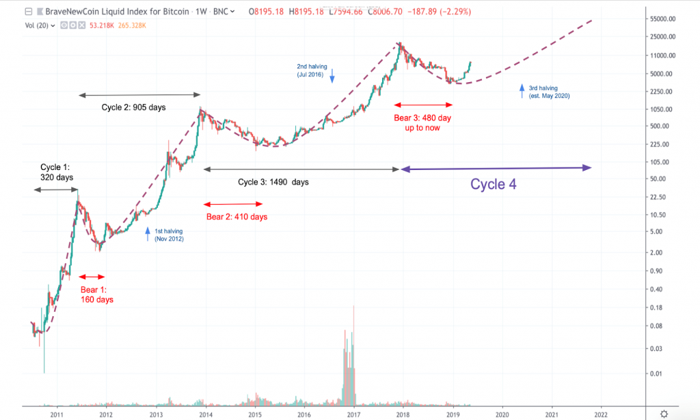The Tornado Cash developer, Roman Storm, finds himself at the center of a high-stakes legal battle as the Department of Justice announces updates regarding his prosecution. Recent changes in policy have led the DOJ to drop part of one count against him, but significant charges related to money laundering allegations and cryptocurrency regulations remain. With the trial scheduled for July, Storm faces scrutiny over claims that he knowingly transmitted funds tied to criminal activities, all amidst a heated debate about the intersection of coding and free speech in the crypto industry. The Roman Storm case exemplifies the challenges developers face in the rapidly evolving landscape of cryptocurrency regulations. As this crypto industry trial unfolds, it raises critical questions about the regulatory environment and the implications for other players in the field.
In the ongoing proceedings involving Roman Storm, a prominent figure in the world of decentralized finance, the complexities of the digital currency landscape are becoming increasingly apparent. The legal scrutiny surrounding the Tornado Cash creator highlights the broader implications of the Department of Justice’s approach to regulating cryptocurrency activity. As allegations of money laundering surface and regulators tighten their grip, the case serves as a litmus test for the evolving legal framework governing cryptocurrency development and use. This pivotal situation not only sheds light on individual accountability within the crypto sphere but also reflects the ongoing battle between innovation and regulation. With the trial set to commence soon, the crypto community watches closely, eager to see how this case may reshape the future of digital asset regulations.
Significance of the Roman Storm Case in Cryptocurrency Regulations
The ongoing case against Tornado Cash developer Roman Storm represents a critical moment in the evolution of cryptocurrency regulations in the United States. The Department of Justice’s decision to drop part of the allegations—specifically regarding money transmitter business registration—highlights the complexities and ambiguities that still exist in the current regulatory framework. As the DOJ adjusts its approach following the issuance of new guidelines, this case is emblematic of the broader challenges faced by individuals and businesses operating within the cryptocurrency ecosystem. The verdict could set a precedent for how similar cases are prosecuted in the future, impacting the entire crypto industry.
Moreover, the litigation touches on fundamental issues surrounding free speech and coding as a legitimate form of expression. As the defense argues, coding should be protected under free speech rights, akin to writing literature or producing art. This aspect of the Roman Storm case emphasizes the ongoing tension between regulatory oversight and innovation within cryptocurrency markets. As the trial progresses, the decisions made by the courts could influence public policy and redefine how the DOJ approaches cryptocurrency regulations moving forward.
Frequently Asked Questions
What is the current status of the Tornado Cash developer Roman Storm’s trial?
The trial for Tornado Cash developer Roman Storm is scheduled to proceed in July 2025. While the Department of Justice has decided to drop one part of the charges regarding money transmitter business registration regulations, it will continue to pursue allegations related to money laundering and sanctions violations.
How does the Department of Justice’s recent policy memorandum affect the Tornado Cash developer’s case?
The recent policy memorandum from the Deputy Attorney General has influenced the Department of Justice’s decision to dismiss a portion of the charge against Tornado Cash developer Roman Storm. Specifically, it emphasizes that the DOJ should avoid pursuing cases under unclear regulations, reflecting a shift towards more cautious prosecution strategies in cryptocurrency-related cases.
What are the main allegations against Roman Storm, the Tornado Cash developer?
Roman Storm, the Tornado Cash developer, faces serious allegations including knowingly transmitting funds linked to criminal activities, conspiring to commit money laundering, and conspiracy to violate sanctions laws. These charges are under scrutiny as the case approaches trial.
Why is the Tornado Cash developer’s prosecution significant for the cryptocurrency industry?
The prosecution of Tornado Cash developer Roman Storm is seen as a pivotal case for the cryptocurrency industry, as it raises concerns about regulatory overreach and the implications of coding as free speech. Many in the crypto community fear that pursuing such cases can set a precedent that threatens the freedom of code development and innovation in the sector.
What arguments have been made by Roman Storm’s defense regarding his charges?
Roman Storm’s defense argues that his activities, particularly in coding, are protected under free speech laws. They contend that coding is akin to writing and should be treated as a form of expressive activity, thus challenging the legality of the prosecution’s claims related to money laundering and business registration.
How does the Roman Storm case relate to broader cryptocurrency regulations?
The case against Tornado Cash developer Roman Storm has sparked discussions about how cryptocurrency regulations are enforced. The Department of Justice’s changing stance, guided by recent memorandums, indicates a potential shift towards clearer regulations and cautions against prosecutorial actions that could be seen as regulation by prosecution in the evolving crypto landscape.
| Key Point | Details |
|---|---|
| DOJ Review of Memorandum | The Department of Justice (DOJ) reviewed a memorandum from Todd Blanche concerning the case against Roman Storm. |
| Partial Dismissal of Charges | The DOJ will drop the charge regarding failure to adhere to money transmitter business registration regulations. |
| Major Charges Remaining | Charges of knowing transmission of funds linked to criminal activity, conspiracy for money laundering, and sanctions breach remain. |
| Upcoming Trial Date | The trial is set to proceed on July 14, 2025. |
| Implications of Todd Blanche’s Memorandum | The memorandum directs prosecutors to avoid cases lacking clear regulations, indicating a shift in DOJ’s approach. |
| Defense Arguments | Brian Klein, representing Storm, argues the case threatens the entire cryptocurrency industry and should not have been filed. |
| Free Speech and Coding | Klein claims that coding is a form of free speech akin to the expression found in literature. |
Summary
The ongoing legal case against Tornado Cash developer Roman Storm highlights critical issues surrounding cryptocurrency regulation and its intersection with free speech. With the DOJ partially dismissing charges and the trial date set for July, the implications of this case extend beyond Storm, potentially shaping the future of cryptocurrency development and regulation in the United States. As the cases unfold, the stance of the DOJ could either signal a more lenient approach towards crypto developers or create a chilling effect on innovation within the industry.
The Tornado Cash developer, Roman Storm, finds himself at the center of a high-profile case as the Department of Justice moves forward with prosecution amid a growing scrutiny around cryptocurrency regulations. Recent developments indicate that the DOJ will forego certain charges related to regulatory compliance, adjusting its approach following a pivotal memorandum from Deputy Attorney General Todd Blanche. Nevertheless, Storm still faces serious allegations tied to money laundering and violations of sanctions, with a trial scheduled for July 2025. The case raises significant questions regarding the crypto industry trial landscape, particularly in light of evolving standards and the ongoing debate over money laundering allegations in the digital finance sphere. As these events unfold, they could redefine legal frameworks for crypto developers and the industry at large.
Roman Storm, a key figure linked to the Tornado Cash development, is currently embroiled in a case that highlights the complex intersection of technology and law in the cryptocurrency realm. With the U.S. government pursuing charges against him for engaging in alleged financial misconduct, including conspiracy related to illicit transactions, the implications for the broader crypto ecosystem are significant. This ongoing legal battle reflects broader concerns regarding how cryptocurrency is regulated and the potential risks of prosecution based on ambiguous legal interpretations. As the trial progresses, it will serve as a critical test of legal definitions within the digital currency space, influencing future cases and the operational environment for cryptocurrency developers. This situation underscores a critical juncture for the crypto industry, challenging the balance between innovation and regulatory compliance.














